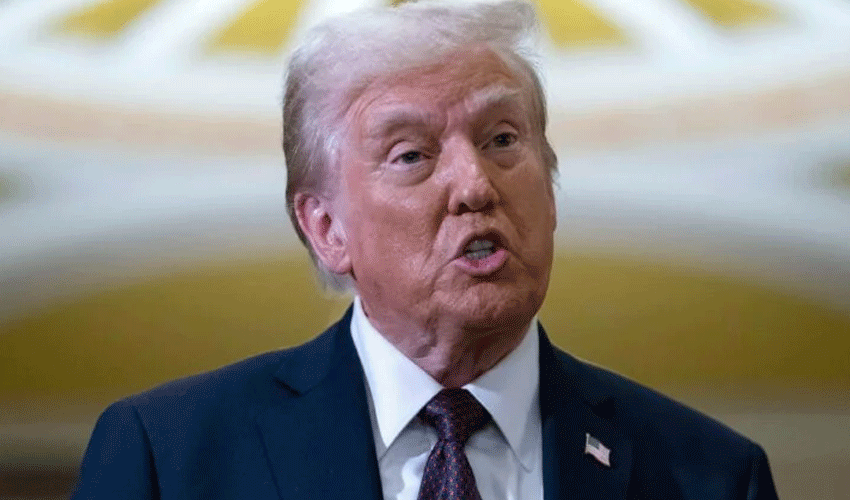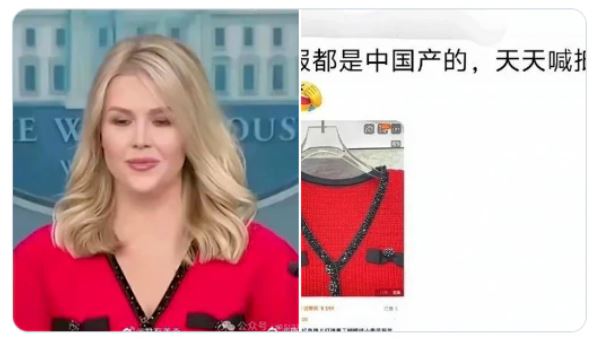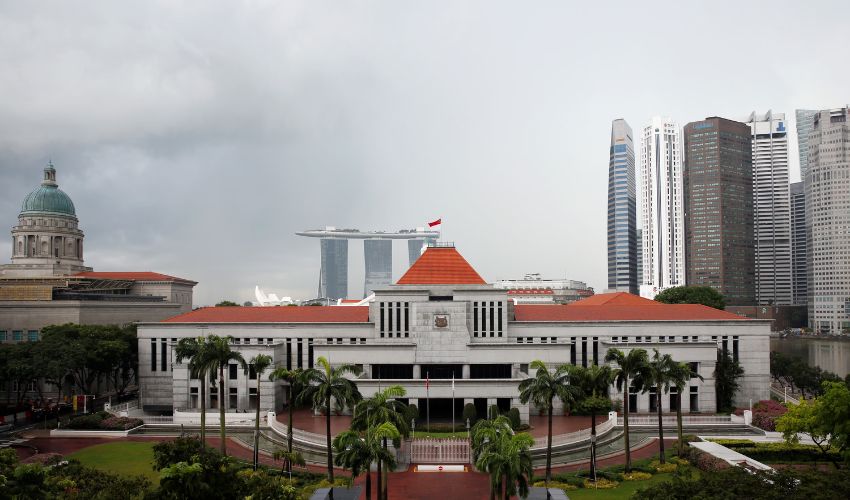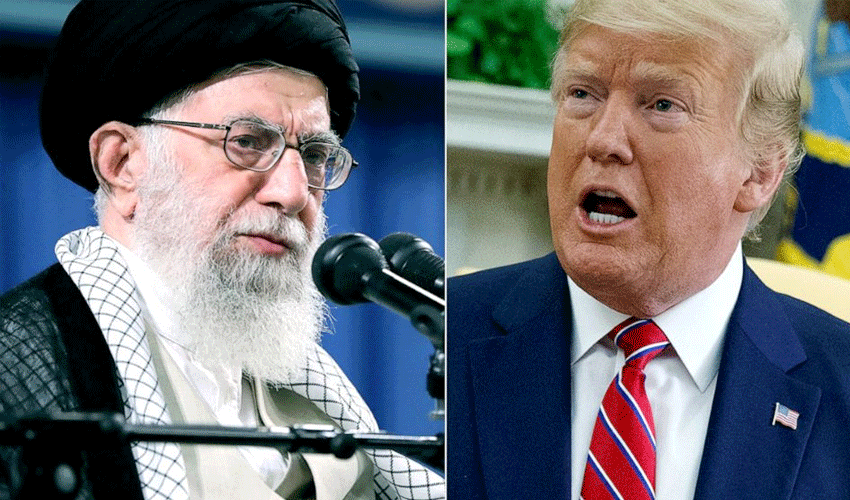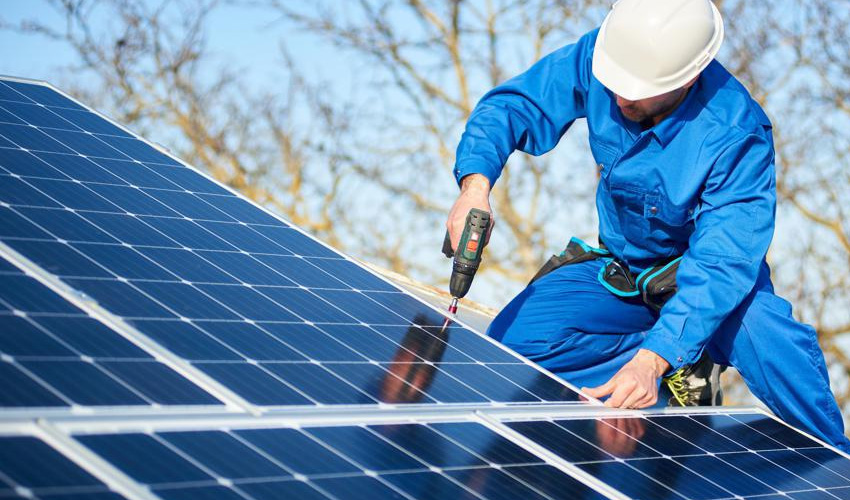US President Donald Trump on Saturday said nuclear talks with Iran were “going OK”, as indirect negotiations between Tehran and Washington concluded in Oman with both sides agreeing to continue discussions next week.
Speaking to reporters aboard Air Force One en route to Florida, Trump said the talks “might be going okay” and also hinted at forthcoming announcements on reciprocal tariffs and the ongoing war in Ukraine.
His comments came just hours after Iranian and American delegations ended what was described as “constructive” discussions in the Omani capital, Muscat. The Iranian foreign ministry confirmed the talks were held in a “constructive atmosphere and based on mutual respect”.
According to Iran’s Ministry of Foreign Affairs, Saturday’s indirect negotiations were mediated by Oman’s Foreign Minister Badr bin Hamad al-Busaidi, with US and Iranian officials sitting in separate rooms.
The United States delegation was led by Special Envoy Steve Witkoff, while Iran’s Foreign Minister Abbas Araghchi led the opposing side, accompanied by senior officials including Kazem Gharibabadi and Esmail Baghaei.
Though the two sides only briefly exchanged words in person while leaving the venue, officials on both ends signaled cautious optimism, with the White House calling the exchanges “positive and constructive”.
“These issues are very complicated, and Special Envoy Witkoff’s direct communication today was a step forward in achieving a mutually beneficial outcome,” the statement read, confirming that another round of talks is scheduled for next Saturday.
The revival of dialogue comes nearly seven years after Trump withdrew from the landmark 2015 Joint Comprehensive Plan of Action (JCPOA), which had limited Iran’s nuclear activities in exchange for sanctions relief. Iran responded by scaling back its commitments under the deal and ramping up its uranium enrichment activities.
While the US had indicated a willingness to hold direct negotiations, Iran has repeatedly rejected sitting across the table from American officials, citing mistrust stemming from the US exit from the original accord. The latest round, therefore, took place through shuttle diplomacy facilitated by Oman.
Tehran insists the current talks are solely focused on nuclear issues and will not extend to its missile programme or regional alliances. Before the talks began, Ali Shamkhani, a senior adviser to Supreme Leader Ayatollah Ali Khamenei, said Iran is seeking a “real and fair” deal.
“Far from putting up a show and merely talking in front of the cameras, Tehran is seeking a real and fair agreement. Important and implementable proposals are ready,” Shamkhani posted on X.
White House Press Secretary Karoline Leavitt also echoed the administration’s hardline stance, warning that “there will be all hell to pay” if Iran does not meet US demands.
“We’ve been very clear that Iran is never going to have a nuclear weapon, and I think that’s what led to this meeting,” said US Secretary of State Marco Rubio.
Iran, meanwhile, has threatened to withdraw from the Nuclear Non-Proliferation Treaty (NPT) and expel International Atomic Energy Agency (IAEA) inspectors if Western powers increase pressure through further sanctions or censure resolutions.
Despite the rhetoric, financial markets responded positively to the mere continuation of talks, with Iran’s currency recovering slightly after hovering at historic lows.
European countries party to the JCPOA — France, the United Kingdom, and Germany — have also urged restraint and a diplomatic resolution. “There is no alternative to diplomacy,” the European Union said in a statement on Friday.
Russia and China, who were also part of the original nuclear deal, have voiced support for Iran and criticised Western sanctions, strengthening strategic cooperation with Tehran in recent months.
Adding to the pressure, Washington on Thursday imposed new sanctions targeting Iran’s oil exports and nuclear programme, while Israeli Prime Minister Benjamin Netanyahu reportedly discussed with Trump the application of the “Libyan model” — a full dismantlement of Iran’s nuclear infrastructure.
Iran has remained defiant, maintaining that its nuclear programme is peaceful and aimed at civilian use. However, several senior officials have warned that Tehran could pursue nuclear weapons if faced with what they consider an “existential threat”.
To reinforce its position, Iran’s military and the Islamic Revolutionary Guard Corps (IRGC) recently held extensive exercises showcasing both defensive and offensive capabilities.





